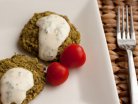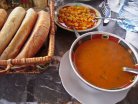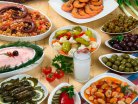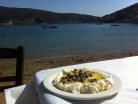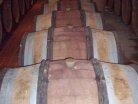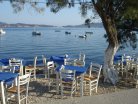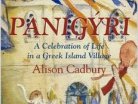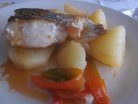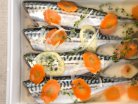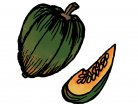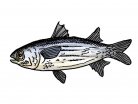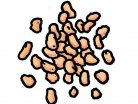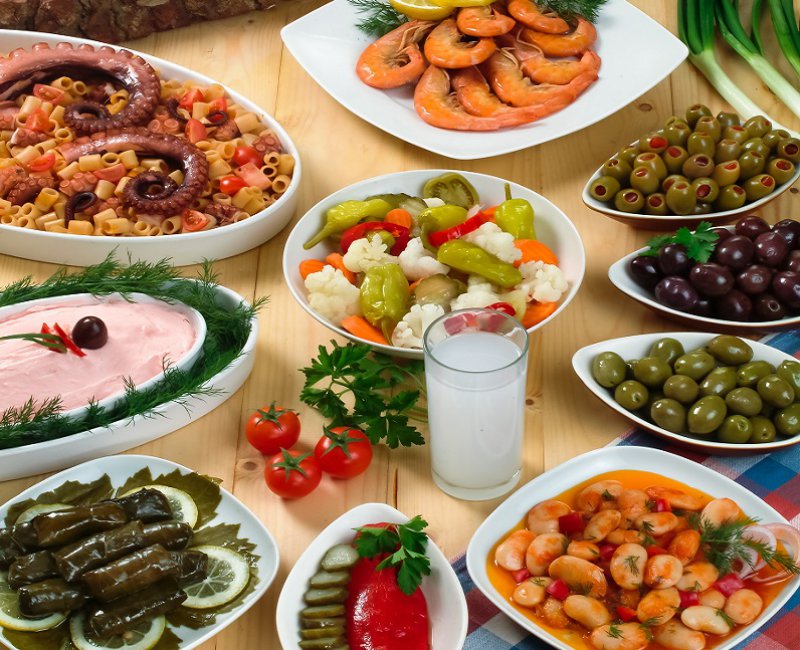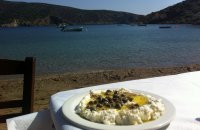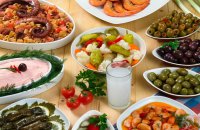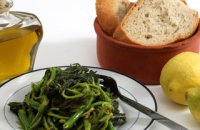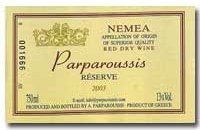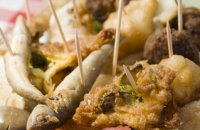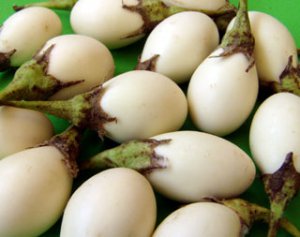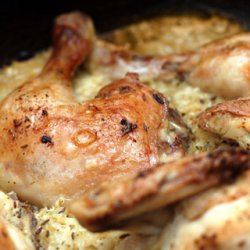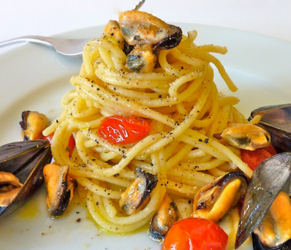Even though he went about his business methodically and professionally, turning out more than a thousand or so loaves, he didn't fail to observe all the traditions of the fast. Indeed, he was a part of those traditions, for lagana, which traces its roots to the flat, grilled porridges of the ancient Greeks, is the lenten bread par excellence.
Byzantine hymns wailed softly in the background, as his assistant cut off quarter-kilo rounds of dough. The baker took each piece, slapped it onto his floured work table and proceeded to roll it into perfect ovals with a special studded rolling pin. Every half hour or so, he walked over to a counter at the back of the bakery where he had his evening meal laid out: a container with taramosalata, the Greek fish roe spread, which he ate with fresh tender stalks of young garlic; small pickled green peppers; a small plate of mixed pickled vegetables and olives; a few pieces of rice-stuffed squid and some octopus preserved in vinegar brine. A wedge of halva lay on its side, waiting for the baker to sprinkle some lemon juice over it and wash it down with some retsina. In that small array of dishes, I realized, the whole philosophy of the Greek Lenten table was apparent.
Thinking of Lent as a period of culinary significance might seem ironic - after all fasting is meant as a period of physical and spiritual cleansing. Yet, some of the best dishes in Greek cooking are those resulting from this tradition of abstention, from the 40 day period before Easter when one shuns all animal products. Until just a few decades ago, the majority of Greeks abided by the dictates of the religious calendar, fasting not only before Easter, but also before many other major holidays, so that they actually kept off meat and dairy products for nearly half the year. As a result, a whole culinary repertory evolved, that is a reflection of the ingenuity of home cooks who relied on the bounty of the season to provide filling, nutritious meals.
There are several standard preparations, but the foods of the Greek lenten table really comprise a wealth of vegetable, grain, and seafood dishes. Fish, traditionally, is not allowed, but all manner of shellfish are. Octopus, squid, and mussels are favourites, and there is a wealth of regional preparations for each. Among them, deliciously aromatic octopus stews seasoned with cinnamon, orange rind, allspice and tomatoes; squid or cuttlefish stewed with spinach; octopus cooked with short pasta; mussel pilaf; and much more.
Stovetop specialties abound. Indeed, one of the greatest legacies of the lenten table is the array of lathera; these are basically one-pot casseroles made with vegetables and pulses, which rely heavily on the use of olive oil (lathi is the Greek word for oil). These include preparations such as chick peas stewed with onions, garlic and olive oil, lentil and other bean soups, white bean and giant bean casseroles, all perfumed with herbs, tomatoes, and greens. Another classic, and one that falls into the category of lathera, is spanakorizo, a stovetop medley of spinach and rice on which olive oil and lemon juice are drizzled without restraint.
Lenten Sweets
Halva is by far the most popular Lenten sweet, and in Greece it comes in many versions. The store-bought variety is made with tahini (sesame paste) and sometimes studded with nuts and raisins, or marbled with chocolate. It is sold in blocks or made in large pans.
Another commercially made halva is a regional specialty of Thessaly. Called halva Farsalon, it is made with cornstarch or rice flour and has a chewy, gelatinous texture and an opaque, amber colour. It usually has a delicious crust of caramelized sugar on top.
Home cooks prepare halva too, with semolina flour, olive oil, water, and sugar syrup; the result is more like a grainy pudding. Sometimes nuts and raisins are added to the mixture and cinnamon sprinkled on top; this type of halva is called Halva tis Rinas (Semolina Pudding).
The Greek Lent Table
Several years ago, I spent the night before "Clean Monday", as Greeks call the first day of Lent, baking the traditional Lenten flatbread lagana with a local Athenian baker.
Country:
Related Articles
Most Popular recipes

